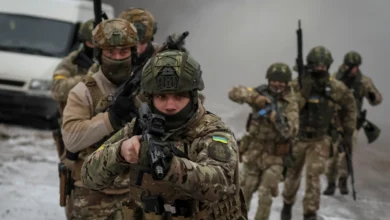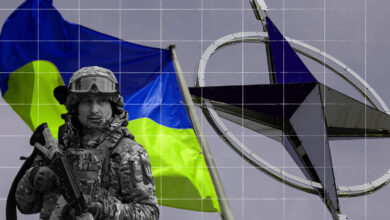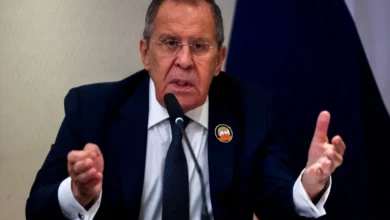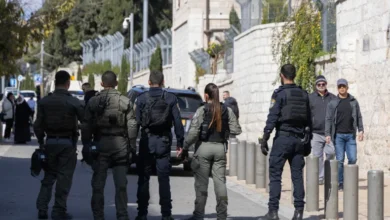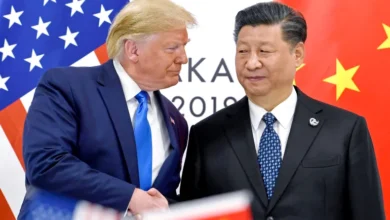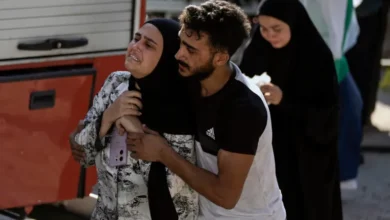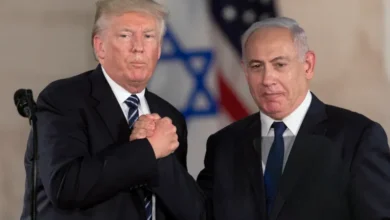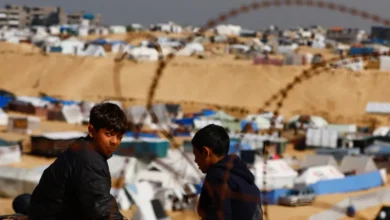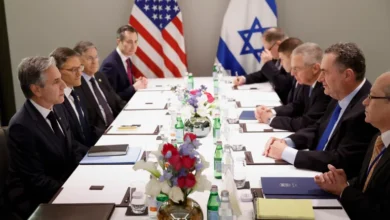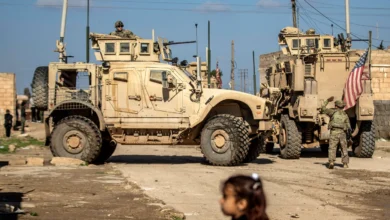Will Israel’s protests shake Netanyahu’s hold on power?
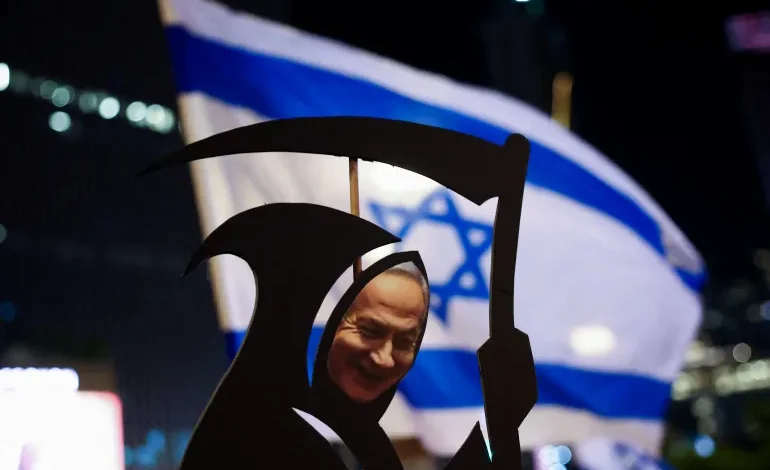
Israel has erupted in rage over the deaths of six captives in Gaza, after the country’s military recovered their bodies on Sunday, nearly 11 months after they were taken by Hamas and other Palestinian armed groups during the October 7 attacks.
The military said the captives had been killed shortly before their bodies were recovered. Prime Minister Benjamin Netanyahu blamed Hamas for the deaths, saying, “Whoever murders hostages doesn’t want a deal.”
But around 300,000 people took to the streets on Sunday evening to protest against Netanyahu’s government, which they blame for its failure to secure a ceasefire deal in Gaza.
Senior Hamas official Izzat al-Risheq said the six captives were killed in Israeli air strikes.
Hamas has offered to release the captives in return for an end to Israel’s devastating war in which more than 40,700 Palestinians have been killed in Gaza; the withdrawal of Israeli forces from the enclave; and the release of a large number of Palestinian prisoners, including high-profile members of Gaza’s armed groups.
On Sunday, protesters chanted slogans against the Netanyahu government, as scuffles broke out between them and the police. Israel’s main labour union called for a strike on Monday, which brought the country to an economic standstill for a few hours before a labour court ordered workers to return to their jobs.
The general strike — the first such nationwide call to stop work since October 7 — represents the latest challenge to Netanyahu’s hold on power within Israel. But the impact of the protests and strike, said analysts, will only be known in the days to come.
“It’s too soon to tell [what this means for the government],” Alon Pinkas, a former Israeli ambassador and government adviser, told Al Jazeera. “The name of the game here is sustainability — meaning will these demonstrations continue?
“Will the strike that is taking place be a one-off thing that Netanyahu is not making a big deal of so people can vent frustration and anger? Or is this going to be a recurring theme?”
Israel at boiling point
The war on Gaza has been raging since Hamas and other Palestinian factions launched an operation on October 7 during which 1,139 people in Israel were killed and around another 240 were taken captive. Israel’s devastating war on Gaza has killed nearly 41,000 people and wounded more than 94,000 others. The International Court of Justice is hearing allegations that Israel is committing genocide in Gaza. The prosecutor of the International Criminal Court, meanwhile, has sought arrest warrants against Netanyahu and his Defence Minister Yoav Gallant, along with two Hamas leaders.
After a brief pause and prisoner exchange in November, a large part of Israeli society has demanded that Netanyahu negotiate a ceasefire deal to release the remaining 100 or so captives, a majority of whom are believed to still be alive.
A deal appeared to be close in late May, but Netanyahu added a series of new, non-negotiable conditions that have largely derailed talks, according to Israeli negotiators and analysts. Those conditions included keeping Israeli troops on the Philadelphi Corridor, bordering Egypt, and the Netzarim Corridor, which separates north and south Gaza.
Since then, thousands of Palestinians in Gaza have been killed and Israel has intensified operations in the West Bank and Lebanon.
“The fronts [in the West Bank and Lebanon] are real, but he did exacerbate them? Yes. Is he flirting constantly with escalation? Yes,” Pinkas said. “He needs war to continue.”
Meanwhile, Israel has focused its attempts on freeing the captives through military operations rather than negotiations. In early June, Israel launched an operation that led to the rescue of four captives, but killed over 200 Palestinians, according to Palestinian health officials.
This strategy, however, has met rising criticism inside Israel. The recent recovery of the six bodies has only further fuelled the opposition to Netanyahu’s approach.
“The government and the prime minister are now on the defensive,” Ori Goldberg, an expert on Israeli politics, told Al Jazeera. “This is about momentum now.”
‘Netanyahu’s interests are the country’s interests’
This isn’t the first time that Netanyahu has been the focal point of widespread protests in Israel. Hundreds of thousands took to the streets in 2023 to protest against his plans to overhaul the country’s judicial system, in what critics claimed were attempts to evade corruption charges from a past premiership.
